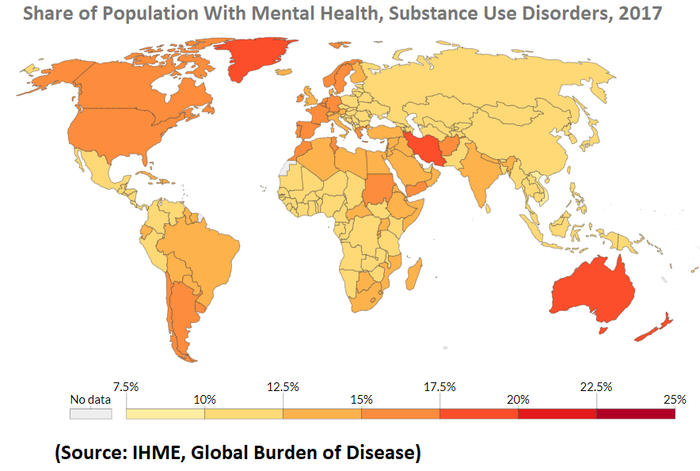Depression in Poor Nations: Guardian
Many experts once assumed that mental illness, especially, depression was concentrated in wealthy nations. In the 1990s, Vikram Patel, psychiatrist and researcher, set out to study if depression in Zimbabwe and other poor countries was actually a response to deprivation and injustice – conditions stemming from colonisation.” Traditional healers in Zimbabwe described “kufungisisa,” or excessive worry about a problem and reactions to poverty and other stresses,” reports Tina Rosenberg for the Guardian. Instead, patients described the classic symptoms of depression. Around the same time, the World Bank was conducting a study to determine how to allocate aid. The researchers found that mental disorders, while rarely listed as a cause of death, were the single largest cause of disability worldwide, often accompanying and complicating other illnesses. Yet treatment was largely unavailable in developing nations, with the World Health Organization reporting in 2005 that entire countries like Rwanda and Afghanistan had access to one or two psychiatrists. The article reviews community health programs with lay counselors trained for rural areas who provide interventions for every aspect of a patient’s life, including financial, social, employment and mental health. Medication as treatment is rare in developing nations. – YaleGlobal
Depression in Poor Nations: Guardian
For decades, many psychiatrists had assumed depression was a western phenomenon, but a new movement has turned such thinking on its head
Saturday, June 8, 2019
Read the article from The Guardian about research on depression in developing countries.
Tina Rosenberg is a regular contributor to the long read and co-founder of the Solutions Journalism Network.

Global mental health: The map is based on estimates using a combination of sources including medical and national records, epidemiological and survey data, and meta-regression models.
Our World in Data includes similar global maps for depression, anxiety, bipolar disorder, eating disorders and schizophrenia.
The Guardian
© 2019 Guardian News & Media Limited or its affiliated companies. All rights reserved.